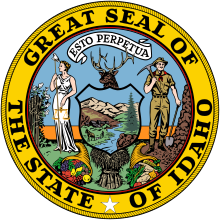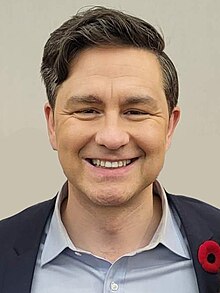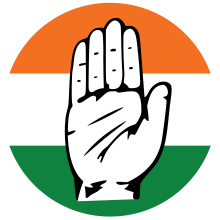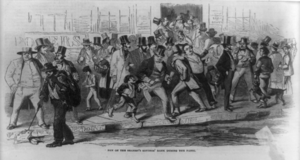
Back Portal:Politik ALS بوابة:السياسة Arabic بوابة:سياسة ARZ Портал:Политика Bulgarian প্রবেশদ্বার:রাজনীতি Bengali/Bangla Portal:Politika BS دەروازە:سیاسەت CKB Portál:Politika Czech Portal:Politik German Portal:Siyaset DIQ
| Main | Topics and categories | Tasks and projects |
The Politics portal
Politics (from Ancient Greek πολιτικά (politiká) 'affairs of the cities') is the set of activities that are associated with making decisions in groups, or other forms of power relations among individuals, such as the distribution of resources or status. The branch of social science that studies politics and government is referred to as political science.
It may be used positively in the context of a "political solution" which is compromising and non-violent, or descriptively as "the art or science of government", but also often carries a negative connotation. The concept has been defined in various ways, and different approaches have fundamentally differing views on whether it should be used extensively or in a limited way, empirically or normatively, and on whether conflict or co-operation is more essential to it.
A variety of methods are deployed in politics, which include promoting one's own political views among people, negotiation with other political subjects, making laws, and exercising internal and external force, including warfare against adversaries. Politics is exercised on a wide range of social levels, from clans and tribes of traditional societies, through modern local governments, companies and institutions up to sovereign states, to the international level.
In modern nation states, people often form political parties to represent their ideas. Members of a party often agree to take the same position on many issues and agree to support the same changes to law and the same leaders. An election is usually a competition between different parties.
A political system is a framework which defines acceptable political methods within a society. The history of political thought can be traced back to early antiquity, with seminal works such as Plato's Republic, Aristotle's Politics, Confucius's political manuscripts and Chanakya's Arthashastra. (Full article...)
Selected article
The Liberal Movement was a minor South Australian political party in the 1970s. Stemming from discontent within the ranks of the Liberal and Country League, it was organised in 1972 by former premier Steele Hall as an internal group in response to a perceived resistance to sought reform within its parent. A year later, when tensions heightened between the LCL's conservative wing and the LM, it was established in its own right as a progressive liberal party. When still part of the league, it had eleven parliamentarians; on its own, it was reduced to three. In the federal election of 1974, it succeeded in having Hall elected to the Australian Senate with a primary vote of 10 per cent in South Australia. It built upon this in the 1975 state election, gaining almost a fifth of the total vote and an additional member. However, the non-Labor parties narrowly failed to dislodge the incumbent Dunstan Labor government. That result, together with internal weaknesses, led in 1976 to the LM's being re-absorbed into the LCL, which by then had become the South Australian division of the Liberal Party of Australia. The LM and its successor parties gave voice to what is termed "small-l liberalism" in Australia.
Featured picture

Photo taken by a Lockheed U-2 spy plane of the San Cristobal MRBM launch site in Cuba, November 1962, after the Cuban Missile Crisis. Although this image was taken days after the crisis had ended (October 28), this image has become iconic of the crisis to the point where it is often cited incorrectly as having been taken during the crisis.
Selected quote
Selected biography
Ronald Reagan (1911–2004) was the 40th President of the United States and the 33rd Governor of California. He was defeated in his run for the Republican presidential nomination in 1968 as well as 1976, but won both the nomination and election in 1980. As U.S. President, Reagan implemented new political initiatives as well as economic policies, advocating a laissez-faire philosophy, but the extent to which these ideas were implemented is debatable. The policies, dubbed "Reaganomics", included substantial tax cuts implemented in 1981. After surviving an assassination attempt and ordering controversial military actions in Grenada, he was re-elected in a landslide victory in 1984. Reagan's second term was marked by the ending of the Cold War, as well as a number of administration scandals, notably the Iran–Contra affair. He ordered a massive military buildup in an arms race with the Soviet Union, foregoing the previous strategy of détente. He publicly portrayed the USSR as an "Evil Empire" and supported anti-Communist movements worldwide.
Did you know (auto-generated) -

- ... that Nigeria's Muslim–Muslim ticket challenges the norm of religious balance in politics?
- ... that Caesar studied German forests before turning to politics?
- ... that Dante used the third circle of hell to discuss contemporary Florentine politics rather than the sin of gluttony?
- ... that prior to entering politics, Herbert Salvatierra led a troupe of carnival comparsas?
- ... that Patricia Grace did not intend for her novel Potiki, about the impact of land development on an indigenous community, to be seen as political?
- ... that Jonathan Allen left journalism for politics before quitting 40 days later?
More did you know...
- ...that political opportunity theory explains the rise and decline of social movements by their dependence on outside, political factors?
- ...that impeachment in Norway was used six times in 1814–1845, but only twice since?
- ...that The Mass Psychology of Fascism, a book written by Wilhelm Reich in 1933, blamed sexual repression for the rise of fascism?
- ...that four member states of the European Union have de jure opt-outs and do not participate fully in all common policies?
- ...that Cornelius, Oregon is named after pioneer Thomas R. Cornelius, who served in the both the Territorial and State legislatures?
- ...that the Society of the Friends of Peasants had significant influence on the Danish Constitution of 1849?
- ...that Nunez Community College in Chalmette, Louisiana, is named for the late wife of former Louisiana State Senate President Samuel B. Nunez, Jr.?
- ...that Roman embassies to China are reported in Chinese historical accounts from as early as 166?
In this month
- May 5, 2005 – A General Election in the United Kingdom sees Tony Blair's Labour government returned to office with a reduced majority of 66.
- May 14, 1948 – The Declaration of Independence of Israel is made.
- May 18, 1948 – The first Legislative Yuan of the Republic of China officially convenes in Nanking.
News and Current events
- August 11: 4 local government areas in New South Wales, Australia locked down after COVID-19 case
- August 11: Australia: AstraZeneca vaccine access expanded by Victorian government
- August 1: Australia: Victorian lockdown lifted
- July 29: Tunisia's president dismisses prime minister, suspends parliament
- July 25: Australia: Wikinews interviews Reg Kidd, mayor of the City of Orange, about COVID-19 lockdown and local government
- July 23: South Australia enters week-long lockdown to contain COVID-19 Delta variant spread
- July 21: Technological University Dublin senior lecturer Dr Lorcan Sirr speaks to Wikinews on housing market in Ireland
- July 21: Three rural councils in New South Wales, Australia enter 7-day lockdown
- July 21: Australia: Victoria lockdown extended by a week with 85 active cases recorded
- July 15: California governor signs new state budget, eligible Californians to get stimulus payments
Topics and categories
General images
Related portals
Associated Wikimedia
The following Wikimedia Foundation sister projects provide more on this subject:
-
Commons
Free media repository -
Wikibooks
Free textbooks and manuals -
Wikidata
Free knowledge base -
Wikinews
Free-content news -
Wikiquote
Collection of quotations -
Wikisource
Free-content library -
Wikiversity
Free learning tools -
Wiktionary
Dictionary and thesaurus
Sources
More portals
© MMXXIII Rich X Search. We shall prevail. All rights reserved. Rich X Search


























































